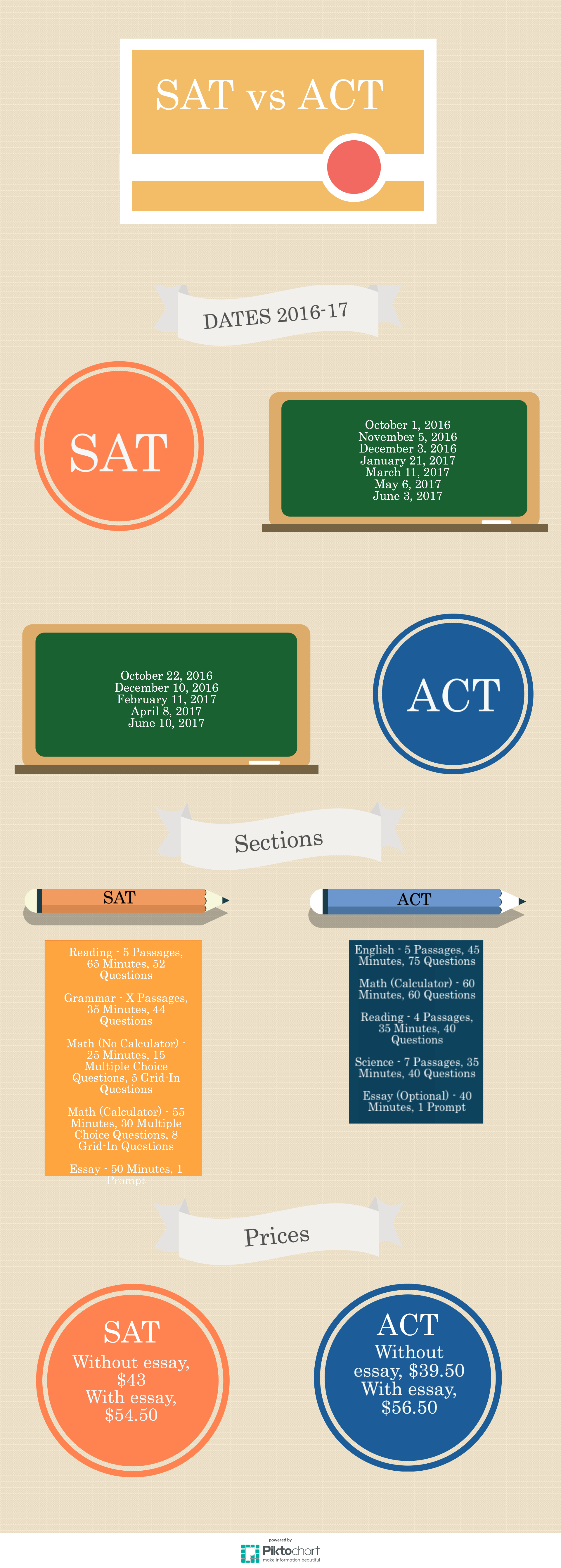As juniors ready themselves for the future, a question tends to arise among peers: “Are you taking the SAT or the ACT?” For most, these questions come up towards the end or during the summer of their sophomore year. And even though most colleges accept either the SAT or ACT, the choice varies significantly between students.
“I decided to take the SAT [first] because it’s more common and it seemed to be what everyone was taking,” Sivakumar said. “I honestly didn’t know much about the ACT but I just decided to go with the SAT.”
While Sivakumar was taking SAT prep classes during the beginning of his summer, he later decided to switch to the ACT. After being assigned a few ACT sections for homework as a part of his SAT class, Sivakumar decided to try a full ACT diagnostic to see how well he fared.
Sivakumar switched over to the ACT after taking multiple practice tests and seeing about a 105 point increase in his score. He thought that the ACT sections, especially reading, were far more straightforward than the SAT.
“ACT questions are a lot more straightforward and the answers can usually be found in the passages.” Sivakumar said. “SAT questions you might have to interpret sometimes and I think reading was the biggest thing [that made me change].”

Chandar, too, decided to try the ACT out later on during the summer but ended up sticking with the SAT due to difficulties in timing on the ACT.
“I decided to take the SAT first.” Chandar said. “It didn’t really come to my mind to take the ACT especially since I feel like the SAT is the more like well known [test]. I feel like […] one of the factors why I thought it was like one of the main [tests] was because […] most of my friends were taking the SAT so I figured that’s what most students do.”
Unlike Chandar and Sivakumar, Balemurughan took her first ACT diagnostic during the beginning of her sophomore year. She decided to stick with it partly because of the straightforwardness of the ACT and partly because of the uncertainty of the new SAT that was coming up.
“Because of the fact that the SAT is changing, I thought that I should try the ACT.” Balemurughan said. “It was more reliable and there were more tests out so I think the people who knew about it were more accurate than what people could assume or predict for the new SAT.”
While Sivakumar and Chandar said that they decided on taking the SAT first partly because it was much more common, Balemurughan did not even take the new SAT diagnostic when it was available because she had already decided on the ACT.
“I do think that I wasn’t really swayed in general by other people’s decisions to take the SAT just because it was more common, [but] because of the changes and uncertainty that came with the new SAT.” Balemurughan said. “I feel like if it didn’t change, I probably would’ve not even considered the ACT.
Similarly to Sivakumar, Balemurughan liked the questions on the ACT better because they did not need to be interpreted.
“I don’t know much about the minor differences between the new SAT and the old SAT but I’m pretty sure that the aspect of trickery that was found on the old SAT is still there.” Balemurughan said. “That just doesn’t bode well with me.”
Balemurughan, not unlike Chandar, had a timing problem at the beginning of her prep but got better at managing her time when taking the ACT.
“The pitfall [of the ACT] is that as a result of the fact that it’s so straightforward, in order to make it harder for students, the timing is a little difficult.” Balemurughan said. “But I noticed that as I continued to practice it wasn’t as bad, so I don’t regret [not taking the new SAT diagnostic].”
Chandar decided not to switch to the ACT because the time constraints were very hard on her. She stuck with the SAT as she was more comfortable with the time allowed to complete each section.
“I didn’t do as well as I thought I would.” Chandar said. “I [think] the problem to time ratio was a little too much for me.”
Another thing that threw Chandar off was the introduction of a science section, something totally new to someone who has only seen the SAT math and english sections.
“[The science section] was like a whole new section [from the SAT] so it kind of shocked me when I was taking the ACT.” Chandar said.
Although neither Balemurughan nor Sivakumar took both diagnostics before choosing the either the ACT or SAT, both recommended that one should do this.
“I would recommend [taking an ACT and SAT diagnostic before choosing one].” Sivakumar said. “It would’ve saved me the time I was preparing for the SAT.”









